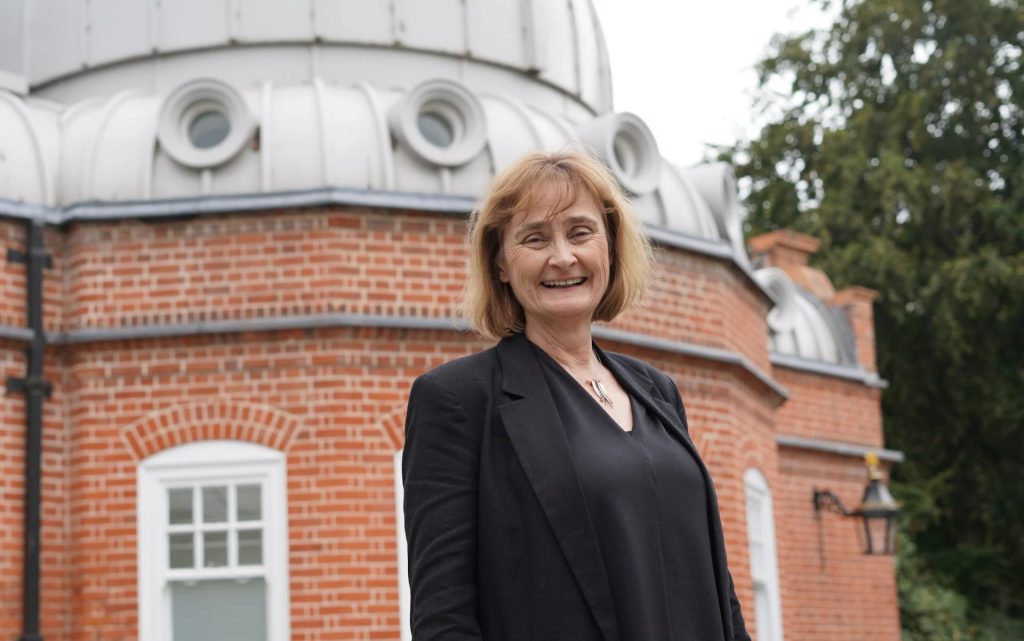In a landmark moment for British science and a powerful symbol of progress, His Majesty The King has approved the appointment of Professor Michele Dougherty as the new Astronomer Royal, making her the first woman to hold the prestigious post since its inception in 1675.
This historic appointment not only honours Professor Dougherty’s extraordinary scientific achievements but also marks a bold new chapter in a role traditionally dominated by men for over three and a half centuries.
She succeeds the eminent Lord Martin Rees, who is retiring after decades of distinguished service.
A Royal Office with Celestial Origins
The role of Astronomer Royal was created by King Charles II in 1675 with the mission of advancing navigation by understanding how to determine longitude at sea. Its first holder, John Flamsteed, laid the groundwork for a legacy that now spans 350 years. While no longer attached to the Royal Observatory in Greenwich as it once was, the position today serves as a symbolic and advisory role to the Sovereign on matters astronomical.
Professor Dougherty will hold the honorary role alongside her current duties as Executive Chair of the Science and Technology Facilities Council, President-elect of the Institute of Physics, and Professor of Space Physics at Imperial College London.
“I Can’t Quite Believe I’m Actually Taking on This Position”
Reacting to the appointment, Professor Dougherty expressed both humility and excitement:
“I AM ABSOLUTELY DELIGHTED TO BE TAKING ON THE IMPORTANT ROLE OF ASTRONOMER ROYAL. AS A YOUNG CHILD I NEVER THOUGHT I’D END UP WORKING ON PLANETARY SPACECRAFT MISSIONS AND SCIENCE, SO I CAN’T QUITE BELIEVE I’M ACTUALLY TAKING ON THIS POSITION. IN THIS ROLE I LOOK FORWARD TO ENGAGING THE GENERAL PUBLIC IN HOW EXCITING ASTRONOMY IS, AND HOW IMPORTANT IT AND ITS OUTCOMES ARE TO OUR EVERYDAY LIFE.”
Her scientific CV is nothing short of stellar. Professor Dougherty is internationally renowned for her research into planetary magnetic fields, particularly those of Saturn and Jupiter. As Principal Investigator of the magnetometer on NASA’s Cassini spacecraft, she led the team that made a groundbreaking discovery: water vapour erupting from Saturn’s moon Enceladus, suggesting the possibility of extraterrestrial life.
She has also contributed to NASA’s Galileo mission to Jupiter and is deeply involved in ESA’s JUICE mission, which aims to explore Jupiter’s moons Europa, Callisto, and Ganymede, and is set to arrive in 2032.
When JUICE launched in 2023, Professor Dougherty described the mission’s challenge of detecting faint magnetic signals as:
“LIKE TRYING TO FIND LOTS OF NEEDLES IN A HAYSTACK, AND THOSE NEEDLES ARE CHANGING SHAPE AND COLOUR ALL THE TIME.”
A Role Model in Science and Public Engagement
Government Chief Scientific Adviser Professor Dame Angela McLean hailed the appointment:
“WARM CONGRATULATIONS TO PROFESSOR MICHELE DOUGHERTY ON HER APPOINTMENT TO THE DISTINGUISHED POSITION OF ASTRONOMER ROYAL. THIS IS A FITTING RECOGNITION OF HER OUTSTANDING WORK AND ENDURING COMMITMENT TO THE FIELD OF ASTRONOMY.”
Beyond the laboratory, Professor Dougherty has championed the inclusion of women in STEM. Her appointment aligns with national efforts to boost female participation in science, technology, engineering, and mathematics. The government currently funds initiatives like the STEM Ambassadors programme, a network of over 28,000 volunteers, 48% of whom are women, and is investing £8.2 million to improve girls’ access to advanced mathematics, supporting 7,500 girls across the country.
A Celestial Milestone for the Nation
Professor Dougherty’s appointment is a triumph not only for British science but for the nation’s aspirations in equality, innovation, and global leadership in space exploration. As the first woman to serve as Astronomer Royal, she steps into a role steeped in tradition, with her eyes firmly on the future.
In a nation that once looked to the stars to navigate its ships, we now look to scientists like Professor Dougherty to help guide our understanding of the universe and inspire generations to come.












